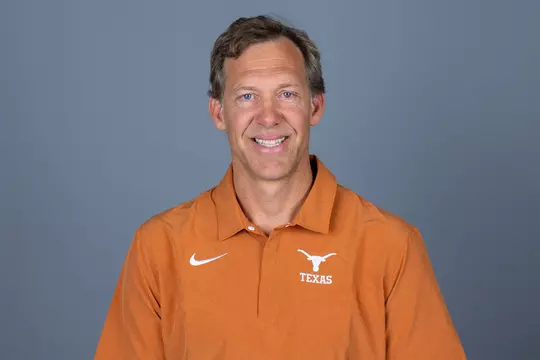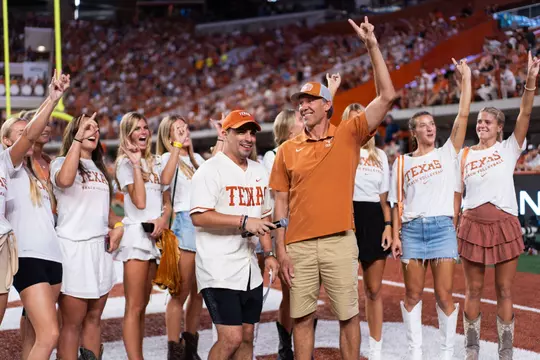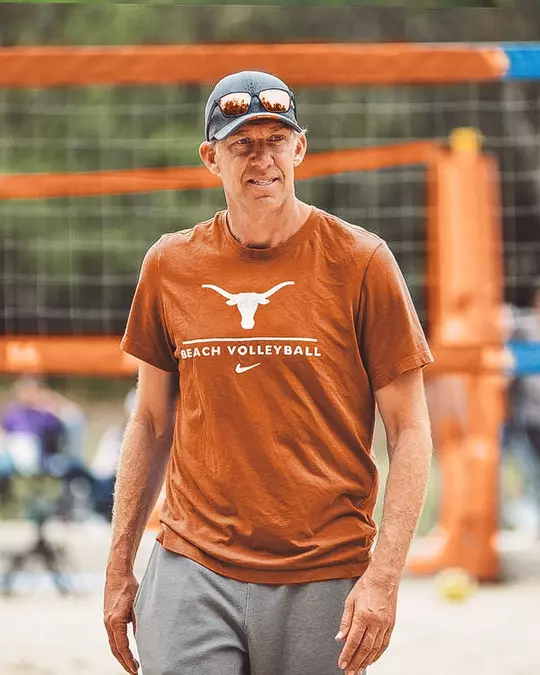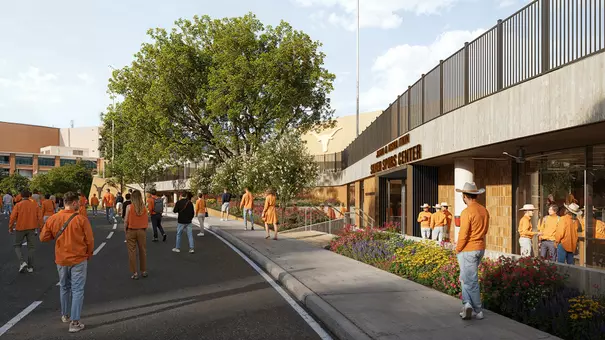Coaches Corner: Q&A with Beach Volleyball Head Coach Stein Metzger
10/25/2023

At the University of California, Los Angeles, you built the beach volleyball program from the ground up. What does it mean to you to get to come to Texas and do the same thing?
The psychic pay from building a program from nothing to a championship program was extremely rewarding. It's something that most people don't get to do once, and I saw an opportunity to do it twice. Coaching at Texas was an opportunity that I couldn't pass up. After meeting people in senior administration and the volleyball staff that has been involved in creating this program, it just made a lot of sense. The resources that uphold Texas’ athletic reputation are here because of the Longhorn Foundation and I’m eager to match that pride and commitment with sweat equity to make things happen with Texas Beach Volleyball.


You were an incredibly successful student-athlete at UCLA, as well as an Olympian. Reflecting on your time at UCLA and the resources you had as a student-athlete, how does that compare to the state of resources for student-athletes now?
There's been a lot of growth in in so many areas from the time I was a student-athlete to now. One excellent example is the Applied Sports Science department here at Texas, which blew me away when I came to visit. To have those kinds of resources and personnel is incredible and something that we didn't have before. In fact, when I played at UCLA, weightlifting was optional! So, to go from optional training to today, where you have Applied Sports Science helping our strength and conditioning staff mold our training program not only specific to our sport but to the individual…it's just light-years ahead of what I had as a student-athlete. It’s really exciting to be able to recruit student-athletes and provide this level of opportunity and support within our program.
How have you seen a scholarship impact the life of a student-athlete?
I remember when I was a student-athlete and there weren't enough scholarships to go around, so Dan Landry––fellow UCLA Bruin, Olympian and All-American––was named the “Muffin Man” because he had to get up at 4 a.m. to deliver muffins in a truck for a baker. The early mornings and extracurricular work would affect his ability to train and to study and do all these other things, whereas when an athlete has a scholarship they can just focus on their craft. Scholarships make the student-athlete and collegiate experience accessible to a larger population and allows young athletes to fulfill their dreams and come to a place like Texas, which maybe they would be unable to do otherwise. Scholarships take a lot of stress and off of student-athletes and allows them to focus on their craft both in the classroom and on the court.

You said that the opportunity to come to Texas and start building the beach volleyball program, mirroring the building of the UCLA program, was one you couldn’t pass up. What does it mean for you to be at The University of Texas?
Texas is the opportunity you don't pass up. A coach strives their whole career to get this sort of opportunity. I've been working my whole life toward this moment where I’m offered and can accept a job at a place like Texas and really try to propel the sport to the next level. Texas has such a great reputation in terms of producing great teams, producing a great product, supporting the student-athletes and doing everything first-class. I think Texas will be the main mover in our sport for the next decade. After being here only for a week and getting out on the recruiting road and talking to my colleagues at tournaments, I’ve been told that Texas getting on board with beach volleyball and securing the staff that they hired has created a wave of excitement in our sport. It’s moved some other administrations to push a little harder in our sport and my colleagues are feeling that across the board. Texas is already having an impact on the beach volleyball environment, and we expect that to continue. I'll stop at nothing short of making sure that happens.
Texas is already having an impact on the beach volleyball environment, and we expect that to continue. I'll stop at nothing short of making sure that happens.
What’s one word to describe the beach volleyball program right now?
Opportunity. Opportunity for growth, opportunity to do things that haven't been done here in Texas yet, opportunity to lay the groundwork for what's to come in the future of this program.

By the time your players leave the Forty Acres, what do you hope to instill in them?
A sense of community and legacy. Being trailblazers, it's on their shoulders to really set the tone for what Texas Beach Volleyball culture is going to be about. I want them to have the foresight that someday they'll be alumni and they're going to be coming to matches and sitting in a VIP area, looking back and thinking, “We were the first ones at Texas and we are the ones that set this program on its path.”
You talked about how when Texas calls, you answer. What was that initial conversation like?
Being a student-athlete at UCLA, building that program and the relationships that I had with my staff and my student-athletes on the team, I never imagined that I would leave. But then again, we didn't know that Texas was going to be an opportunity. So, when I got the call, I thought, “That's a very interesting prospect.” I was extremely excited and cautiously optimistic, but it was such an emotional and hard decision to make to leave a place that I loved. I came out here for an initial visit open minded, though. When I got here, I started walking around and seeing the facilities and resources available…and, actually, going down to see Applied Sports Science, that was what pushed me over. I saw that and knew, “I don't want to miss the boat.” I'd be kicking myself if I turned Texas down and didn’t get the opportunity to see what happened with the sport in this program.

Texas produces Olympic talent. What does it mean to you to get to produce Olympic Beach Volleyball talent? What resources do donors provide to produce Olympic talent as a whole?
When I went to the Olympics, I didn't have access to near what our athletes have in terms of resources and the quality of staff here that help our student-athletes on a day-to-day basis. It's our goal to educate and help them perform at the highest level. If their goals are to go to the Olympics, we can help them do that. We’re here to provide a platform and a springboard for student-athletes not only doing great stuff at Texas, but beyond. And if we're doing our job, then that's going to happen.




